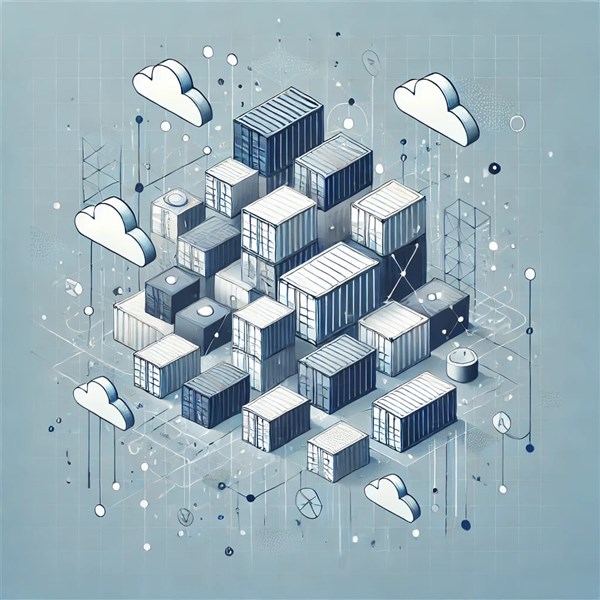
In today's fast-paced technological world, organizations are constantly looking for ways to improve their software deployment and management processes. One of the most significant innovations in recent years is containerization, which has revolutionized how applications are built, packaged, and deployed. Containerization technologies, such as Docker and Kubernetes, have become fundamental components of modern IT infrastructure, enabling more scalable, efficient, and flexible development and deployment pipelines. For IT professionals, obtaining a containerization certification is not only an opportunity to enhance technical skills but also a powerful way to stay competitive in an ever-evolving industry.
In this blog, we will delve into the importance of containerization certification for modern IT professionals, explaining how it can significantly boost career prospects, expand skillsets in cloud computing and DevOps, and help professionals stay ahead of the curve in today’s tech-driven landscape.
What is Containerization?
Containerization is the process of encapsulating software into a standardized unit called a container. Containers package an application and its dependencies, such as libraries, configuration files, and binaries, into a single, portable unit that can run consistently across various computing environments. Unlike traditional virtualization, containers share the host operating system’s kernel while isolating the application from other processes. This lightweight nature allows containers to be highly efficient and portable, which makes them ideal for cloud environments and microservices-based architectures.
Popular containerization technologies, like Docker, and container orchestration platforms, such as Kubernetes, have revolutionized the way software is developed, deployed, and maintained in production environments.
Why Containerization Certification is Essential for IT Professionals
With containerization rapidly transforming IT practices, earning a certification in this domain is becoming essential for professionals seeking to boost their careers. Here are several key reasons why containerization certification should be a priority for modern IT professionals:
1. Growing Demand for Containerization Skills
The increasing demand for cloud-native applications and microservices architectures has placed containerization at the forefront of IT strategies. According to multiple industry reports, container adoption is growing rapidly across industries such as finance, retail, healthcare, and more. As businesses continue to embrace containers to deploy scalable and flexible applications, the demand for professionals skilled in containerization is higher than ever before.
Certified professionals in Docker, Kubernetes, and container orchestration tools are in high demand. Containerization certification not only helps individuals learn essential technologies but also gives them the recognition they need to stand out in the job market.
2. Improved Career Prospects and Salary Potential
With organizations increasingly relying on containerization to optimize their development pipelines, IT professionals who possess a containerization certification are likely to experience higher career growth and salary potential. Employers are willing to pay a premium for candidates who can deploy, manage, and orchestrate containers at scale.
The ability to demonstrate expertise in tools like Docker and Kubernetes can unlock various job opportunities such as:
- DevOps Engineer
- Cloud Engineer
- Site Reliability Engineer (SRE)
- Container Engineer
- Cloud Architect
Additionally, many job postings for cloud infrastructure or DevOps roles require or prefer candidates who are certified in container technologies, making the certification a valuable asset for both job seekers and those looking to advance in their careers.
3. Enhancing Skill Sets in Cloud Computing and DevOps
Containerization is integral to both cloud computing and DevOps practices, making it an essential skill set for IT professionals working in these fields. By obtaining a containerization certification, professionals can enhance their ability to:
- Manage scalable applications: With cloud providers like AWS, Azure, and Google Cloud offering robust container management services (e.g., Amazon ECS, Google Kubernetes Engine, Azure Kubernetes Service), containerization is a must-have skill for cloud professionals.
- Improve collaboration: In a DevOps environment, containers enable continuous integration (CI) and continuous delivery (CD) pipelines, improving collaboration between developers, IT operations, and quality assurance teams.
- Enable automation: Containers allow DevOps teams to automate the entire application lifecycle, from development to testing to production, which leads to faster and more efficient deployment cycles.
4. Faster and More Efficient Deployment
One of the primary benefits of containerization is the ability to streamline deployment processes. Containers can be rapidly deployed across different environments, including development, staging, and production, without worrying about the underlying infrastructure. This consistency reduces the risk of environment-specific bugs, improving application reliability.
Professionals who are certified in containerization are well-equipped to implement continuous integration and continuous deployment (CI/CD) pipelines that automate testing, building, and deploying applications using containers. This reduces the time it takes to bring new features to market, giving businesses a competitive edge.
5. Mastering Container Orchestration and Scalability
For professionals looking to advance in cloud computing or microservices architecture, gaining proficiency in container orchestration tools is critical. Tools like Kubernetes allow IT teams to automate the deployment, scaling, and management of containerized applications. Container orchestration is essential when dealing with large-scale applications that involve hundreds or thousands of containers, ensuring that they remain balanced and functional at all times.
A containerization certification typically covers these orchestration platforms, giving professionals hands-on experience in managing large-scale, distributed applications across multiple environments.
6. Future-Proofing Your IT Career
Technology evolves rapidly, and staying ahead of the curve is essential for long-term career success. As the industry shifts toward more flexible, scalable, and cloud-native solutions, containerization is set to remain a cornerstone of IT infrastructure. By obtaining a containerization certification, IT professionals ensure that their skill sets align with industry trends, positioning them for continued career success in the coming years.
Moreover, with the increasing use of containers in edge computing, IoT (Internet of Things), and serverless architectures, the future opportunities for certified professionals are even broader.
7. Hands-On Experience with Industry-Standard Tools
Most containerization certification courses provide hands-on experience with industry-standard tools like Docker and Kubernetes, as well as containerization platforms used in real-world environments. This practical experience is invaluable for IT professionals looking to gain not only theoretical knowledge but also the technical expertise needed to manage and deploy containers effectively.
Conclusion: A Must-Have Skill for Modern IT Professionals
As businesses continue to embrace cloud-native technologies, containerization will remain an essential skill for IT professionals. Whether you're in DevOps, cloud computing, or IT infrastructure management, obtaining a containerization certification will equip you with the technical skills and industry recognition needed to stay competitive in the job market.
The growing demand for containerization professionals, combined with the ability to work with cutting-edge technologies like Docker and Kubernetes, makes certification a valuable asset. It enables professionals to not only gain a deeper understanding of containerization but also improve deployment efficiency, enhance scalability, and future-proof their careers.
Choosing the right containerization course is crucial. It should cover key concepts such as container orchestration, management, security, and networking. It should also provide hands-on training to ensure you can apply what you learn in real-world scenarios.
With a wide range of courses available, Koenig Solutions, a leading IT training company, is committed to providing high-quality containerization training to help IT professionals stay ahead in their careers.
The world of IT is evolving at a rapid pace, and so should you. Get your containerization certification today and take your career to new heights.







COMMENT